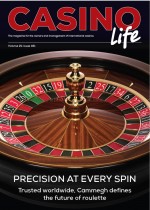If you have ever watched Mikki Mase talk gambling, you already understand how much sharp strategy and real-world insights can elevate your game. But hearing tips on YouTube is just one part of the puzzle. Joining a local gambling community gives you something even more valuable — the chance to trade ideas in person, watch how seasoned players handle pressure, and get the kind of honest feedback solo practice can never match.
Connecting with other gamblers also helps you discover sites where AZ players accepted, allowing you to put new strategies into play. With big welcome bonuses, plenty of slots and table games, and quick cashouts, it’s easy to take what you pick up in the community and put it into action.
And once you’re in that mix, you’ll see how much solid advice can lift your game every step of the way.
Sit&Spin is the ultimate battleground for players ready to unleash their weapons on their reels. In Sit&Spin, you battle it out for the ultimate prize of winning 2.5x more than your play.
Why Learning in a Group Strengthens Your Game
Local groups offer more than tips—they’re learning machines. A 2019 study of 15 poker players revealed how community-based learning accelerates progress: in "friendly" groups, members openly shared winning strategies and tools, while in more competitive circles, information was guarded or even misleading. The difference? Trust.
Inside these circles, you gain practical insights: someone picks up on a tell you missed, another breaks down odds in plain language, and a third challenges your habits. The study also highlighted a modern shift — with hand histories and tracking tools, online groups have become informal coaching hubs, where data reviews play out on Discord or WhatsApp.
If you’ve ever followed Mikki’s breakdowns on your own, picture sitting in a room where you can stop and ask, “What did I miss?” That is what thriving communities offer. They help you absorb tactics, catch blind spots, and improve risk awareness.
Plus, that kind of feedback keeps you grounded, whether you’re running hot or losing focus — something no YouTube clip can offer when the stakes feel real.
How Risk Management Improves Faster in Real Communities
Seasoned players understand that long-term success depends on managing risk across sessions. In a local community, players swap strategies and push each other’s thinking. Research from the National Council on Problem Gambling reports that around 2% of U.S. adults (about 6 million people) meet criteria for gambling disorder, a reminder of how easily excitement can turn into overreach without the right balance.
Within a group, players discuss when to lean in or back away, and how to avoid thinking traps that drain bankrolls. Watching someone at your table explain why they folded a strong hand or skipped a bet offers insight rarely found in solo online sessions. Many communities also build in accountability: whether through informal staking deals or group bankroll discussions, players track each other’s ups and downs, helping balance personal perspective.
For those looking to sharpen both their play and mindset, this environment naturally reins in risky habits, an edge even the best software or tutorials will never deliver.
Boosting Confidence and Keeping Players Motivated
When players meet regularly, something valuable happens beyond tactics. Research from the University of Nevada’s International Gaming Institute found that social play builds mental toughness, helping players stay focused through swings, setting apart those who improve from those who drift off.
In experienced circles, you encounter choices and methods that stretch your thinking. You watch how one person manages momentum, how another adjusts under pressure, and how choices shift with stakes and atmosphere. Studies show that exposure sharpens adaptability by expanding how players read situations.
This mix of observation and participation builds a learning atmosphere where progress feels natural, not forced. Whether through local meetups, shared online tables, or regular group reviews, players continue refining their approach, building on alertness, flexibility, and consistent decision-making.
Understanding Where the Gambling Market Is Heading
The online gambling world is not slowing down anytime soon. Recent industry data shows it’s expected to reach around $186 billion by 2029, growing at an annual pace of over 12%. A big part of this comes from more countries opening up legal markets, but that’s only one piece. Better mobile access, faster apps, live dealer games, crypto payments — all of these are making it easier and more appealing for people to jump in.
For players in local or online communities, this growth is not just numbers on paper; it shapes what they experience daily. Bigger markets mean more tournaments, higher payouts, and waves of new players showing up, many eager but inexperienced. It also means platforms push harder for attention, rolling out bonuses, loyalty programs, or fresh game types every few months.
Inside communities, players trade tips on which sites hold up and which are just showy. Staying in the loop matters because when the landscape shifts this fast, the ones who keep up are the ones who keep an edge, whether they play for small stakes or aim for something bigger.
How Games Keep You Hooked (and How Groups Help You See It)
Modern gambling games are built to pull you in. This goes beyond luck or skill — it’s a crafted design. Game developers know how to use small tricks: near-wins that trick you into thinking you were close, sound effects that spark excitement, and bonus rounds that pop up just to keep you chasing.
Research from places like McGill University has shown that these features can make people keep playing longer, sometimes even when they know they are losing.
But here’s where gambling groups come in. When you’re part of a regular circle — even an online chat — you start hearing how others react, where they get caught up, what patterns they notice. It makes a huge difference. You stop seeing the game as just you and the machine, and you start spotting the nudges built into the system.
Studies have shown that people playing in groups often set clearer limits, call out bad habits, or share ways to break out of losing streak mindsets. In short, a good crew helps you keep your head clear when the game is designed to blur it.



















